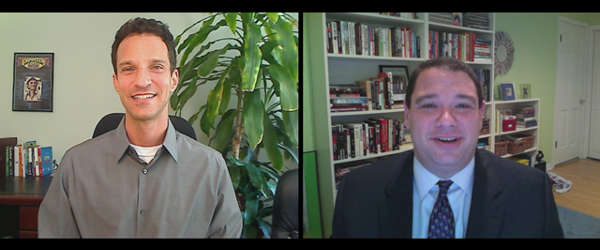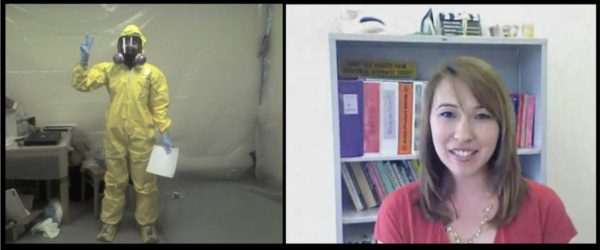Real estate agent jobs can provide you with a career that includes a lot of freedom, social interaction, and unlimited earning potential.
Today’s Guest
 Micah Lachtman: www.lachtman.com
Micah Lachtman: www.lachtman.com
Law School: Santa Clara School of Law in Santa Clara, CA
College Major:English
College: UCLA in Los Angeles, CA
High School: Arcadia High in Arcadia, CA
First Career: Litigation & real estate attorney
First Job Ever: Phone caller for medical records copy service
Worst Job Ever: See First Job Ever!
Today’s guest is a realtor at Coldwell Banker in Pasadena, California who found happiness and success by changing careers. After 6 years as a lawyer, he decided that leaving law was the best fit for him. He transitioned from a litigation and real estate law career to selling homes, condos and townhomes as a realtor.
SNEAK PEEK (Full Episode + Transcript down below)
|
RELATED CAREERS |
Real estate agent jobs are great for people who are self-motivated, detail-oriented, patient, willing to learn new things, have good personalities, people skills and follow-up skills, enjoy challenges, meeting new people and networking within their community. This is definitely one of those sales careers and entrepreneurial jobs that provide you with flexibility for your schedule and the ability to control your income. If you hustle, your income could be unlimited. And if you don’t: you might find yourself dumpster diving for Pop-Tarts crumbs.
Become A Real Estate Agent
Micah explains that to become a real estate agent, each state in America makes its own rules as to what you need to do. Some states don’t even require a high school degree to take a pre-licensing course and the real estate agent licensing exam. You’ll want to search online for “Department of Real Estate ________ [your state]” to learn what’s required in your state.
FULL EPISODE: RESIDENTIAL REAL ESTATE AGENT JOBS
For our Audio Podcast:Careers Out There on iTunes
TRANSCRIPT OF INTERVIEW
Guest Micah Lachtman: Hi, I’m Micah Lachtman, I’m a residential realtor at Coldwell Banker in Pasadena, CA. A typical day for me is servicing my clients’ needs: anywhere from showing them properties in Pasadena and cities beyond, servicing my listings, showing my listings to perspective buyers, making phone calls to my clients, checking the multiple listing service for new listings that just came on the market that suit my clients’ needs, marketing – which is creating ads and determining how to best reach my marketplace and that’s about it. The lifestyle is truly what you make it. My lifestyle is absolutely fantastic. Being a realtor really allows you to design your own life and your own schedule. If you’re not a morning person, that’s OK. If you’re a night owl – fantastic. Really, you can make real estate work for you. So you can take vacation when you want and you can work two months straight without a break or you can take, have designated days – really whatever’s best for you and your lifestyle. Your workplace environment really depends on your office, depends on the area and cities you work in. Everyone has different standards. In Hawaii, I’m sure it’s a lot different than if you practice in Manhattan. So really, it’s going to vary geographically. In my office, it varies from people wearing shorts and sandals to people wearing suit and tie every day. So really, it depends on you and your personality. There’s no wrong or right way – it’s really whatever you’re most comfortable in. The best part about what I do is meeting new and interesting people every single day. The freedom of being a residential realtor – in terms of being able to go on vacation when I want. Also, the entrepreneurship of being a realtor – the sky’s the limit in terms of the income you can generate from being a realtor. I really enjoy what I do, so to me it’s almost like it’s not work.
Host Marc Luber : Hey everybody, welcome to Careers Out There. I’m Marc Luber and today we’re talking to Micah Lachtman, a real estate agent here in Pasadena, CA. Thank you for joining us today Micah.
Guest Micah Lachtman: Thank you for having me Marc.
Host Marc Luber: So I’m sure everybody out there that just watched the video about you has got to be wondering what kind of schooling did you go through, what kind of jobs did you have to take to get to the level you’re at right now, what are the challenges of the job and what are some action plans they can take right now to start doing the same exact kind of career. So let’s get started and let’s first ask since there’s so many different careers out there, what made you decide to be a real estate agent?
Guest Micah: I was a litigation and real estate attorney for 6 years. I represented clients as an attorney buying and selling real estate. That was absolutely my favorite part of my law practice and I decided why not just do what I’m truly passionate about and what I truly enjoy doing. And after 6 years as an attorney I decided I’m going to transition and go into residential real estate. I’ve been a residential realtor, real estate agent, at Coldwell Banker in Pasadena for 3 ½ years.
Host Luber: You went to law school, but not everyone has to go to law school to be a realtor, is that right?
Guest: Marc, absolutely not. I’d say if everyone had to go to law school to be a realtor it would be a very very scary place and not an enjoyable place to work at. But the wonderful thing about real estate is that people come from all different educational backgrounds, whether some people didn’t graduate high school or some people are MDs or PhDs. Every single educational level is represented as a real estate agent. Of course it’s going to vary state to state what the requirements are to be a realtor. Some states may or may not have requirements that you have a high school diploma.
Luber: And someone can find that out, you said, by going to Google?
Guest: I would recommend, I know in CA it’s www.dre.ca.gov , but if you Google your state, put in your state name, North Carolina Department of Real Estate, that should bring you right to your government’s website and the website should have all the criteria in plain print mapped out for you what is your course with your certain educational level and background, what do you have to do to be able to sit for the test. [ED NOTE: It may be on the site under Licensing or Prelicensing].
Luber: And what’s that test? Multiple choice? Essays? Is it a nightmare?
Guest: In CA, the test is all multiple choice. I believe there’s 4 or 5 different answers per question. The agent’s exam, as a real estate agent, I believe has 100 or 150 questions. For a broker, which means you can go out on your own and buy and sell real estate, it may be about 200 questions. [ED NOTE: Some states, like North Carolina, require everyone to take the broker’s exam and do not offer a specific agent’s exam]. In CA, it’s a strictly multiple choice test. There’s 4 different answers per questions.
Luber: Alright so someone watching goes out there, they take this test, they pass it. Then what? Do you take an apprenticeship or do you just dive in and start? How does it work?
Guest: Well if you take the agent’s exam, if you’re a real estate agent in CA, you have to work under a broker. So you need to find a broker – someone who has a broker’s license that you can work under. So whether it’s a Coldwell Banker or another brokerage firm like that or whether it’s a family friend or a relative, you as an agent have to find a broker to actually start doing deals with. If you have a broker’s license, you can certainly hang your own shingle – start your own company – that’s going to require more overhead, more marketing, more type of legal work and document work so you can get your corporation started. But if you have a broker’s license, you can certainly start doing transactions immediately.
Luber: And then once you get going, what are the steps that someone has to take to get to the point where you are now – you’re doing well, things are growing for you…What’s necessary there? What does someone have to do?
Guest: It’s a lot of hard work. When you first start as a realtor, you’re not making money. You don’t get paid hourly. All your money is from commissions and from properties that sell.
Luber: So there’s no salary – people should know – there is not a salary for this career path.
Guest: In most areas, most offices, there is no salary – realtors are all commission-based. So if you don’t sell something, you don’t eat – you can’t feed your family. So if you’re transitioning from a different job, hopefully you have a small nest egg – something that’s going to get you by for at least 6 months to a year saved up where you can survive if, heaven forbid, you don’t sell anything.
Luber: And then what is the commission system? How is that structured – so that someone can figure out OK, I need to sell this much to make that much.
Guest: The commissions are going to vary. Commissions are negotiable between the different brokerage offices. In most offices it’s a commission split – so when you sell something, the office is going to take a certain cut of that. Some offices also work where they have a desk fee, so you’re going to have to pay them X amount of money per month for the privilege of doing business out of their office. That may not be as beneficial for someone who’s just starting and doesn’t have a book of business yet. So that’s something to think about also – what are going to be your start up costs with that brokerage. I know here, I had to pay for it’s called a Fast Start course, which was a 2 week training course. That was $400. And then you have to pay for your Errors & Omissions insurance, which I believe was about $1,800. So you had a few thousand dollars upfront fees that I had to pay to my office, even though it’s commission-based and they don’t take a desk fee. There are still some upfront fees.
Luber: And then once the fees start coming in, what can someone expect in a first year, third year, fifth year, tenth year? What kind of money is there in this career path for someone?
Guest: When you first start out, there are some people who are sensational – they’re the exceptions to the rule – they start doing deals immediately. Maybe they’re well connected in the community, they know a lot of people, they’re phenomenal at what they do, and you can start making money figure 30 days from your first deal. I would say the norm before you actually start seeing money is going to be minimum 3 months. Average probably 6-9 months, maybe a year before you see dime one. That’s why it’s important to have a nest egg. The first year, I made over $100,000. That’s probably a little bit better than average in this area. It’s going to vary by area. It’s based on how much you sell. If you’re in an area where the homes are $50,000, you’re going to have to sell a lot more to make $100,000. If you’re in an area where the homes are all $1 million, you’re only going to have to sell 2 or 3 or 4 homes to make a decent living. So it’s really going to depend on what is the median price in your real estate market. Some people, if you live in North Dakota, South Dakota, you have to do 50 transactions for 1 transaction someone does on a beach front house in Malibu. Usually the commission is going to be around 2 ½%-3% is the average for one side of the commission. So if you represent the buyer, you’re going to look at – at least in my area, 2 ½-3% – on your side. If you sell a $1 million house, 3% is $30,000 and you’re going to share that $30,000 with your office. If your commission split is 50%, then you’re going to get $15,000. And if your split is 80%, obviously, $24,000. So it depends on what your splits are.
Luber: And the good thing is, this is a path people can do anywhere in the country. It doesn’t matter what city you’re in.
Guest: if you live out in the countryside, maybe you’re going to have to cover a larger geographic region. You have to do more traveling. In Pasadena, it’s very densely populated, so there’s lots of homes and homeowners in my area.
Luber: You said earlier that people move into this path from all different backgrounds – whether they’ve dropped out of high school or have a PhD. Some career paths are for A students, some people joke that their career path is for C students. It sounds like this one is for any kind of student, since it really comes down to the individual.
Guest: Absolutely. Real estate is really about you. It doesn’t matter what your grades were in high school, it doesn’t matter if you’re the valedictorian or if you’re at the bottom of the class. It really matters about you – about how much work you put into it, depending on how much marketing you do….Really, I think if you enjoy real estate – if you enjoy this profession, you’re going to do well. If you don’t enjoy it, you’re not going to do well. I think that holds true with any profession. Especially with real estate where you’re going to be working long hours, you’re going to be working on other people’s schedules – sometimes you don’t have the luxury of saying can you do it later? When people get off work, that’s when they want to do things. Before work, that’s when they want to do things. So in some ways real estate is an unconventional, untraditional profession because you’re really working around other people’s schedules. So it’s definitely not a 9-5 job. And for people who don’t have discipline, it’s going to be very very tough. You really have to be disciplined in order to succeed and you have to put in your hours, put in your hard work. Most places, you’re not going to have a boss who is going to make sure you did your homework, so to say. So you have to be a good self-manager and a good time manager as well.
Luber: So since some of the people watching might be in high school now or they might be thinking of making a career change, they might be a parent of someone in high school, what would you tell them that they should be doing? What do you wish that you did back then that you could have learned either from taking a certain class or maybe there’s a certain extracurricular activity or a program you could have gotten involved in along the way whether it was in high school, college or later? What could someone be doing and what do you wish you would have done back then and learned?
Guest: Good question Marc. I think that marketing is essential in real estate. I wish I would have taken marketing classes in college, because I think those would have greatly helped me. That was the biggest, I think, odd transitional element to this career change from going from an attorney to becoming a realtor – is how do you market yourself? I never had to do that. So I really learned by doing and I really strongly believe that how to market yourself and marketing kinds of courses are invaluable in real estate.
Luber: What skills would you say are required to really excel in this career path?
Guest: The most important skills, I believe, are people skills. To elaborate, advocacy skills – how to be an advocate, how to really be in somebody’s corner, how to best represent them. Also being a problem solver. When you’re in real estate, there’s a lot of unexpected issues that arise. People that have been doing it 20-25 years, they encounter new situations and new issues every single day. So someone who is able to think on their feet and able to solve problems. Also, being persistent and aggressive are 2 other extremely important skills. Because if you’re not persistent and aggressive, you’re not going to maximize your income.
Luber: So a lot of this comes down to personality it sounds like. It sounds like the right personality fit is really the way to match up this career path.
Guest: I think most people choose their agents, whether it’s buying their house or selling their house, based on personality as well as what are your qualifications. I’m erring that it’s more about personality – how do you get along, how do the other people like you, how do they perceive you, I think is often more important than what are your qualifications. There are some agents who may not have a high school education or a high school degree, but they are doing way better than people with Juris Doctorates and PhDs. So really, what do you bring to the table – how can you benefit somebody?
Luber: So really, it’s a field that’s open to anybody out there that’s watching right now.
Guest: Absolutely.
Luber: That’s great. Well let’s get to the hardcore stuff which a lot of people that are watching are going to be wondering. What’s the part that, if you can’t deal with this, you can’t do this job? What’s that hard, challenging part of this career path that someone needs to know before they make the decision to dive in?
Guest: People when they buy and sell homes are often indecisive. People can change their minds quickly. So you can be working with somebody for a year or more, and all of a sudden they decide – hey, I’m not going to buy a house. And how many hours did you spend with them? You spent maybe an hour a week, maybe more? Spend 40, 50, 100 hours, 200 hours with a client who has changed their mind, so you invested a lot of time. If you worked at a minimum wage job, you would have gotten paid several thousand dollars. But unfortunately, as a realtor, you get paid nothing. So sometimes, you work for free. So to me, that is one of the extremely frustrating elements. Also, people [not] being loyal and people not doing what they say they’re going to do. It happens in every profession, but in real estate it’s common that you’re their realtor for a month and then they go use a relative or somebody else. So people changing realtors….and sometimes it’s the realtor’s fault. Not understanding what a client needs or not communicating well enough or asking the right questions.
Luber: But because you basically eat what you kill, because it’s a commission-based field for the most part, that’s why these are such big challenges.
Guest: Absolutely.
Luber: What would you say is the next step for you now? What would someone at this point in their career, anyone that’s watching, what can they hope to do next? Where do you take this?
Guest: After 3 ½ years I’m certainly pleased with my progress in real estate and building my client base, building my business, building my infrastructure. I want to take it to the next level where I’m in the top 1%. You know, maybe the top 5 in my office versus the top 20 or 25 or 30. I don’t even know what my ranking is, but I know I’m not in the top 10. So I would love to be in the top 10 in my office, let alone the top 10 in Pasadena. I’ve been doing it for 3 ½ years. I would hope after 5 years that I establish more of a presence in Pasadena as that I’m known as one of the premiere agents in Pasadena.
Luber: And someone can climb in the same way whether they’re in Iowa City or Tallahassee.
Guest: Sure.
Luber: They can do the same thing – just by sticking to it and working their network.
Guest: Absolutely. It’s not done with luck. It’s really done with a lot of hard work and effort and breaking into your community, establishing a name brand – which is you, and being known and recognized for real estate – whether you’re going to concentrate on a certain area, a certain type of property….You know, some people concentrate on farmland, some people are going to concentrate on million dollar estates, some are going to concentrate on condos, golf club communities. Also – find a niche – find a unique angle.
Luber: Good advice. What would it be, if you had to boil this down to the key factors for success, what would you tell everybody?
Guest: I would say be optimistic. Because clients can read it on your face. There’s a lot of agents and the markets go up and down. The stock market goes up and down every day. The real estate market goes up and down. No matter what your situation is – no matter if you haven’t cashed a check in 6 months, always be optimistic. Always be positive. So I think being positive is extremely important. Enjoying this profession – if you don’t enjoy it, people can read it on your face.
Luber: That’s really any kind of sales path. That’s really good advice for any kind of sales path, for sure.
Guest: Absolutely. If you’re not passionate about real estate, you’re not going to be in the top tier. I think it’s going to be difficult to even make a living if you’re not passionate about it. Because it is a very difficult job. It’s an extremely competitive job. People have been doing it in certain areas for 20-25 years, so how do you break into that? Well it’s going to take a lot of hard work. If you don’t enjoy it, you’re not going to want to take it to the next level. You’re not going to want to put in the effort.
Luber: What would you tell everybody if they want to get into this right now? What are some action steps that they can take today?
Guest: Go onto your state’s Department of Real Estate website and find out what the requirements are based on your academic level. Look into when the courses are going to be offered in order for you to take your agent’s exam and I would chart a path. Do you have a job now? You can do classes at night. See what the requirements are and take it from there.
Luber: So if someone’s watching who has a neighbor, a friend, a child who wants to get onto this path, they should send them to that site.
Guest: In CA, it’s www.dre.ca.gov. I would just Google Department of Real Estate North Carolina or whatever state you live in and you should be directed right to the government website, which is going to have the requirements for taking the test and obtaining a license.
Luber: Sounds good. Micah, thank you for being here.
Guest: You’re welcome. Thank you.
Luber: Everybody at Careers Out There, thank you for watching and we look forward to seeing you again soon. Thanks.
RELATED POSTS
Business Sales Advice From A Commercial Sales Manager
Solar Jobs: Learning the Solar Business & Sales
Green Jobs: Energy Auditor & Home Performance Contractor Careers








Good interview to find out what a real estate agent does day to day. Thanks for creating this video.
I’m glad the video was helpful. Thanks for the comment!
Good interview, but still have the question…Can you be successful at this as a part-time agent? I have a fulltime job (school nurse) and have a decent amount of availability to work real estate on the side, late afternoon, evenings, summers.
Great example of interviews! A very good example for real estate agent nowadays, thank you so much for putting up these video in here.
Thanks for the comment Nurse Jo. I talked to Micah to get his thoughts on your question. As to whether you can be successful part-time, he said that really depends on your market and how you define success. Because real estate is the largest investment that most people make, they usually seek experience and commitment from their realtor. Most buyers and sellers generally prefer full time, committed realtors. He posed a good question: “Would you want to go to a part time surgeon or attorney who only worked summers?” He said the more you do the work, the better understanding you get of your market…so you’re that much more knowledgeable for your clients if you’re more focused on the career…and that much more likely to succeed. He said the good thing about doing it part time is that you may find that you enjoy real estate more than your current profession and that it is always possible to be an exception to the rule and be able to satisfactorily supplement your income by doing it on the side. I hope that helps!